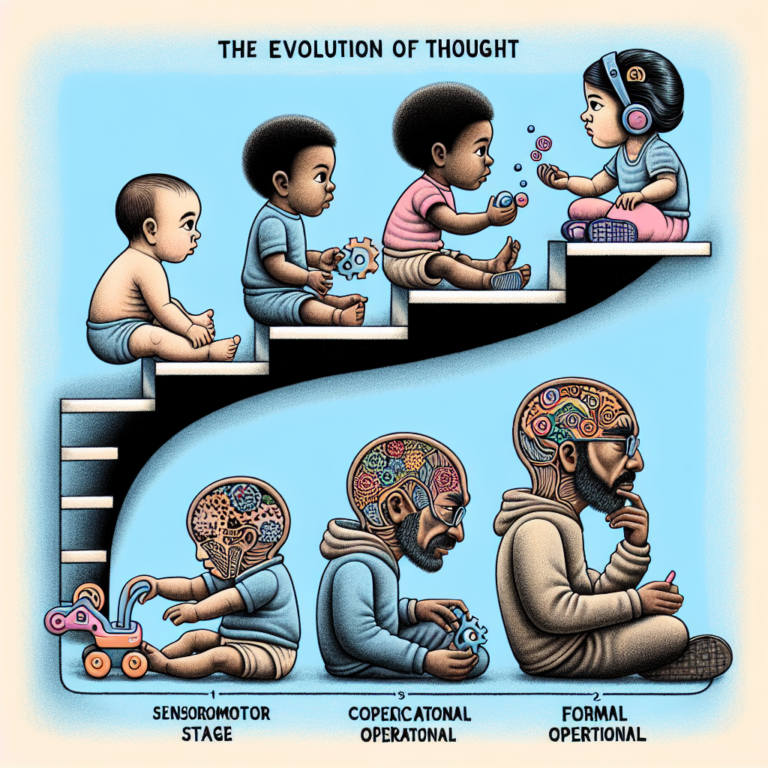
Introduction
In a world increasingly filled with uncertainties, the ability to stay focused on our goals can feel daunting. Economic downturns, personal setbacks, and unexpected global events can throw our plans into disarray, leaving us grappling with how to navigate these obstacles. However, navigating obstacles is not only about overcoming challenges; it’s about maintaining goal orientation amid adversity. This interconnected journey requires resilience, adaptability, and a well-thought-out strategy. In this article, we will explore Navigating Obstacles: Strategies for Maintaining Goal Orientation in Challenging Times with actionable insights and compelling case studies that illustrate how individuals and organizations have successfully achieved their goals despite facing significant hurdles.
The Importance of Goal Orientation
Goal orientation refers to the degree to which individuals focus on achieving and maintaining goals. Maintaining a strong goal orientation can boost motivation, enhance resilience, and improve overall performance, especially during challenging times.
Why Focus on Goal Orientation?
- Clarity of Purpose: Goals provide a clear direction, which is indispensable in turbulent times.
- Motivation Boost: A well-defined goal acts as a motivational beacon, inspiring individuals to push through difficulties.
- Enhanced Resilience: By focusing on goals, individuals can frame obstacles as temporary setbacks rather than insurmountable barriers.
While obstacles may be unavoidable, maintaining goal orientation helps transform challenges into manageable experiences.
Understanding the Nature of Obstacles
To effectively navigate obstacles, it’s essential to understand the types of challenges that can arise. They can be categorized into:
1. Personal Challenges
These include mental health issues, personal relationships, and self-doubt. For instance, an employee may struggle with work-life balance due to family obligations.
2. Professional Challenges
Work-related stressors encompass project deadlines, difficult colleagues, and organizational changes. An example is a sudden layoff that can disrupt career plans.
3. External Challenges
Global events such as pandemics, economic shifts, or political instability can create significant hurdles that affect both personal and professional landscapes.
Strategies for Navigating Obstacles
1. Set Clear and Achievable Goals
Creating SMART (Specific, Measurable, Achievable, Relevant, Time-bound) goals is foundational to maintaining goal orientation. These goals should act as a roadmap, allowing for adjustments as obstacles arise.
Case Study: The New Year’s Resolution Trap
Many individuals set resolutions at the start of the year but fail to keep them. One study found that only 8% accomplish their resolutions. By instead creating smaller, measurable objectives, like fitness goals spaced out over the year, re-engagement with personal aspirations becomes manageable.
2. Embrace a Growth Mindset
A growth mindset encourages resilience. This means viewing obstacles as opportunities for growth rather than threats.
Case Study: Thomas Edison
Edison famously failed over a thousand times before successfully inventing the light bulb. His perspective turned potential defeats into learning moments, embodying the essence of a growth mindset.
3. Develop Adaptability Skills
Being adaptable is critical. The ability to pivot when plans change will help maintain focus on the end goal.
Insert Table: Adaptability Skills Comparison
| Skill | Importance | How to Develop |
|---|---|---|
| Flexibility | High | Embrace uncertainty |
| Problem-solving | Medium | Engage in critical thinking |
| Emotional intelligence | High | Practice empathy and self-awareness |
4. Create a Support System
Surrounding oneself with positive influences can bolster motivation and provide fresh perspectives.
Case Study: Community Initiatives During COVID-19
During the pandemic, community support systems emerged where individuals rallied to assist each other through mutual aid, fostering both resilience and a sense of shared goal orientation.
5. Practice Mindfulness
Mindfulness helps individuals stay focused on the present moment, reducing anxiety about the future. Techniques such as meditation or journaling can help maintain mental clarity.
6. Regularly Review and Adjust Goals
Continuously evaluating the relevance of one’s goals allows for necessary adjustments, ensuring that individual aspirations align with changing circumstances.
Tools for Maintaining Goal Orientation
Using tools like planners, apps, and visual aids can simplify the goal-maintaining process.
| Tool | Description |
|---|---|
| Digital Planners | Online tools such as Trello or Notion |
| Habit Trackers | Apps like Habitica help track progress |
| Mind Mapping | Visualization tools like MindMeister |
Conclusion: Taking Action
Navigating obstacles isn’t merely about enduring; it’s about transforming adversity into opportunity, fostering resilience, and maintaining goal orientation. By implementing the strategies outlined here—setting clear goals, embracing a growth mindset, developing adaptability, creating a support system, practicing mindfulness, and regularly adjusting goals—individuals can cultivate the fortitude necessary for success, even in challenging times.
Key Takeaway
Your goals are within reach, even in demanding circumstances. Prioritize clarity, flexibility, and resilience, and take actionable steps toward sustaining your aspirations.
FAQs
1. What should I do when I face an overwhelming obstacle?
- Take a step back, reassess your goals, and create a smaller action plan to tackle the challenge in bite-sized pieces.
2. How can I maintain motivation when progress seems slow?
- Celebrate small victories and engage with your support system to reignite passion and motivation.
3. Is it normal to feel discouraged during challenging times?
- Yes, feeling discouraged is a natural response. Acknowledge your feelings but focus on the strategies that help you pivot back to your goals.
4. How do I practice mindfulness effectively?
- Start with short meditation sessions, practice deep breathing techniques, or keep a gratitude journal to enhance mindfulness.
5. Can my goals change over time?
- Absolutely! Regularly reviewing your goals ensures they remain relevant to your current circumstances and aspirations.
By adopting proactive strategies for navigating obstacles and maintaining goal orientation, one not only thrives in challenging times but also emerges with newfound strength and insight. Let this serve as both a reminder and an invitation to keep striving for your goals, regardless of the obstacles in your path.














